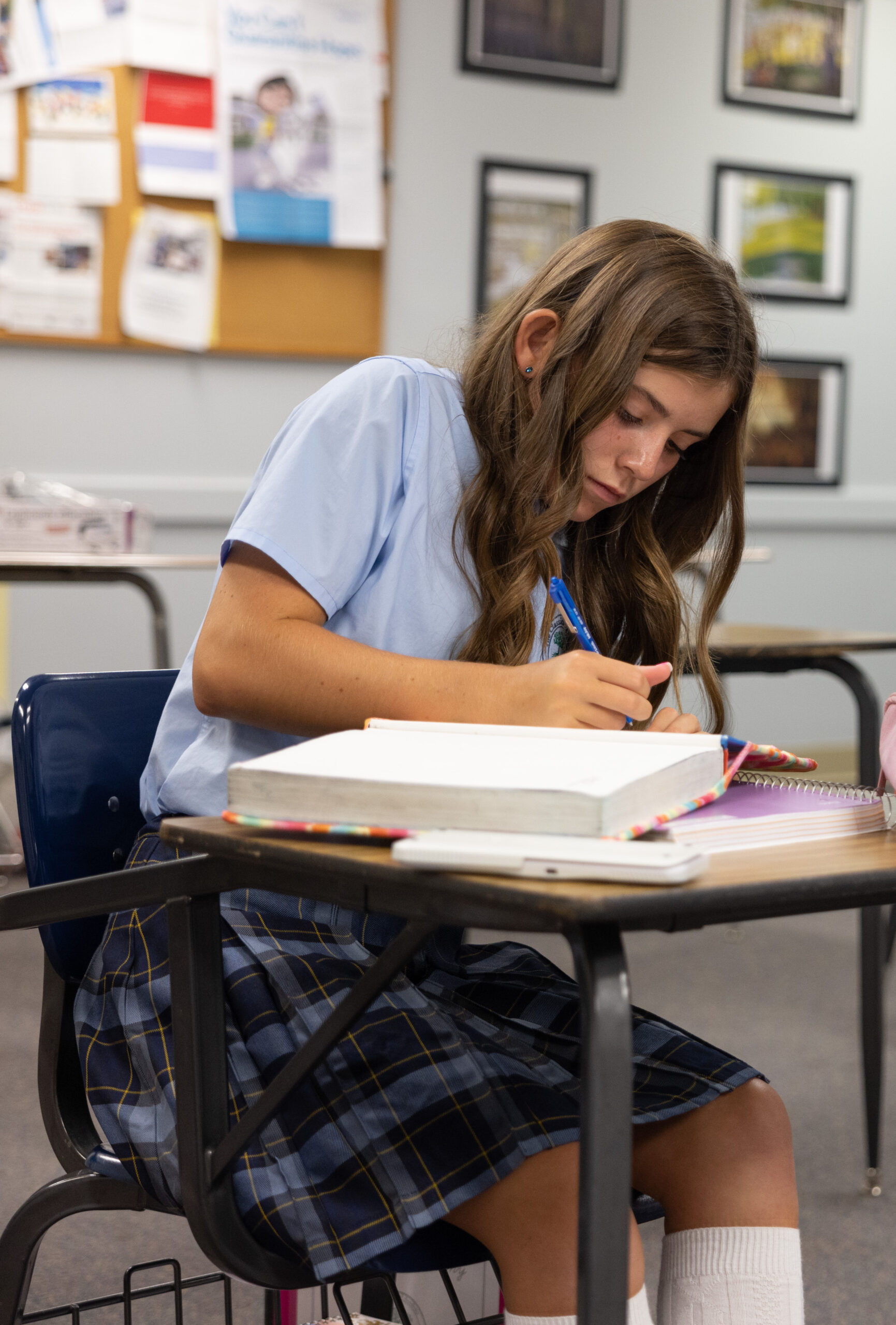Logic School
6th-8th Grade
Students want to know the “Why”
In the Logic Stage, students want to know the “why” behind what they are learning and they begin to explore their capacity to reason. Students take the facts mastered in the Grammar Stage and learn how to organize and apply them, build cogent arguments, and challenge ideas in an open forum. In order to utilize these developing skills, students are expected to think logically and discuss actively in their classes, preparing them for deep and meaningful exploration in all subjects within a Christian world-view. The most important answer to the “why” question steers students to the ultimate Truth in the person of Jesus Christ. We seek to train students’ hearts and minds to love the True, the Good, and the Beautiful, emphasizing the love of God and the love of others as the answer to how students should live out each day.

What Your Child Will be Doing in Logic School
Write well-structured paragraphs and papers
Understand the how and the why behind mathematical computations
Discuss worldviews demonstrated in literature
Learn 64 pieces of art along with the corresponding art movement
Recite great poetry
Identify formal logic and logical fallacies
Draw and label a map of the entire world by heart
Engage the wonder, mastery, integration approach to the sciences and begin formal science labs
Study history, literature, and theology as one integrated whole
Study art from a Christian worldview from creation to the present
Latin and English grammar
Draw conclusions from a series of facts
Learn the difference between a logical and emotional response
Socratic Teaching in Logic School
This is the stage at the Classical Academy where students begin learning through Socratic teaching. Socratic teaching is a guided question and answer form that is highly effective in teaching students to think. The teacher typically asks a broad “opinion” question that seems to have no right answer. Then, as the students attempt to answer, the teacher guides them through the use of logic toward thoughtful and defensible conclusions.
While this seems straightforward, Socratic teaching is an art. It takes time, which is why most schools do not practice it. We find that students at this stage are ready to use their minds in a way that develops independent thinking, rather than simply repeating information they are given.
